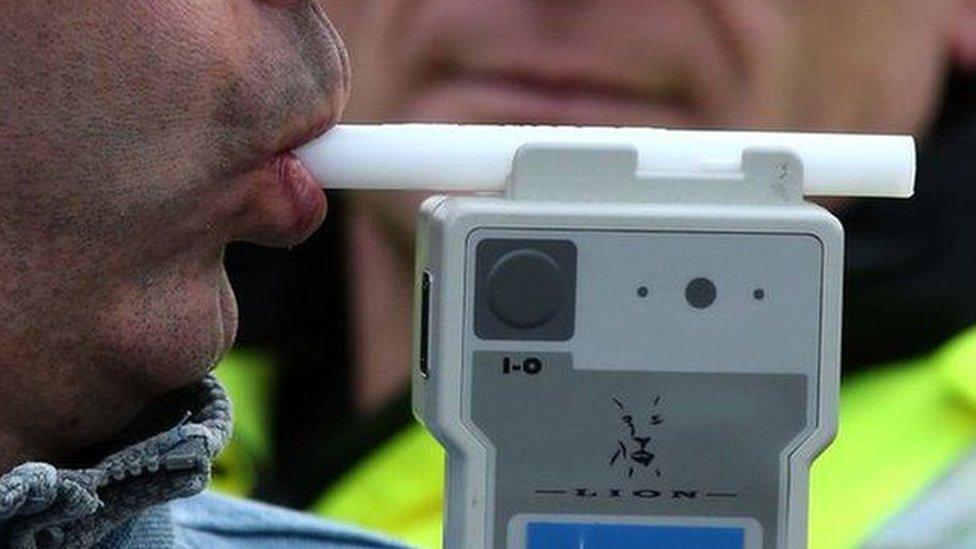Driving bans recognised on both sides of Irish border
- Published

The law covers bans for reckless or dangerous driving, hit-and-runs and driving while under the influence
Driving bans are now mutually recognised on both sides of the Irish border due to a change in the law.
From Tuesday, people banned on the other side of the border from where they live will have the prohibition extended to their home jurisdiction.
The law change gives effect to a road safety agreement signed between the UK and Irish governments in 2015.
Drivers banned in their home jurisdiction would not be able to drive in the other as they have no licence.
The law change covers drivers banned for reckless or dangerous driving, hit-and-runs and driving while under the influence of drink or drugs.
Penalty points
Meanwhile, the Department for Infrastructure in Northern Ireland said officials on both sides of the border continue to work closely to implement the mutual recognition of penalty points for speeding, drink driving, not wearing seatbelts, and use of mobile phones.
A plan to implement this was put on hold in February 2014.
"This is complex and ground-breaking work which will require primary legislation in both jurisdictions. Both jurisdictions remain committed to implementing the mutual recognition of penalty points," a spokesperson said.
"It would, however, be wrong to move to legislation until we have confirmed that the legislation will be workable and effective.
"The concept of mutually recognising penalty points is simple - but the practical out workings are very complex."
Change welcomed
Northern Ireland's chief inspector of criminal justice Brendan McGuigan welcomed the law change regarding driving disqualifications.
"I am delighted that from now on, those motorists found guilty in court in either jurisdiction will find their motoring bans do not disappear when they travel north or south, or east or west across the border," he said.
"Motorists who choose to drive recklessly, or in a manner which creates a danger and places other road users at risk, cannot be tolerated, and I fully support the introduction of this legislative change."
Irish Transport Minister Shane Ross said it was an important road safety measure, targeting dangerous drivers.
"The new measures are underpinned by an international agreement between Ireland and the UK, which comes into effect today, and primary legislative provisions in Ireland and the UK, which have been commenced (on Tuesday)," he said.
"Under the Ireland-UK agreement, the driving disqualification is, in effect, transferred by the state which imposes it to the licence of the offender's 'home' state.
"So, the legal consequence of the offence committed follows the offender home."
The SDLP's infrastructure spokesperson Daniel McCrossan said: "This legislation is a major step in tackling dangerous and careless drivers on this island. This is a practical, common-sense measure."
- Published12 May 2014
- Published26 September 2011
- Published24 February 2014